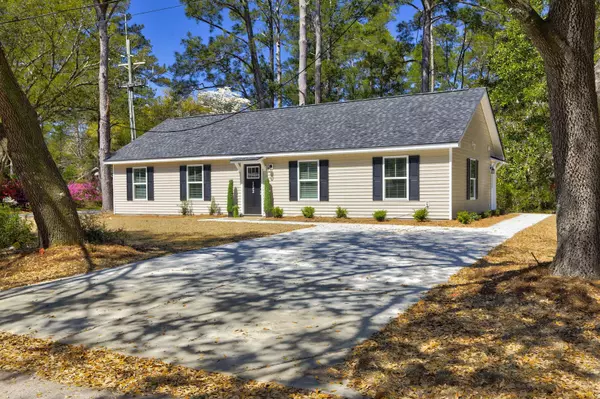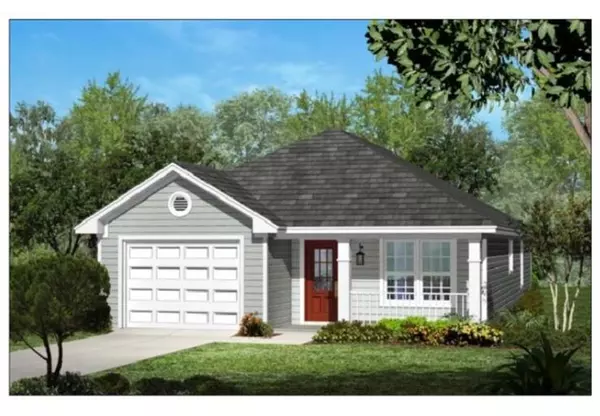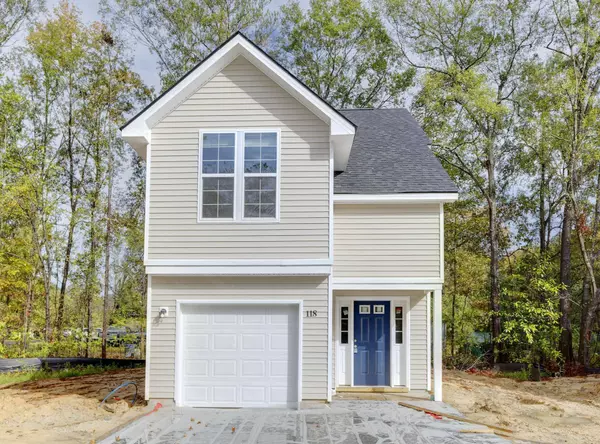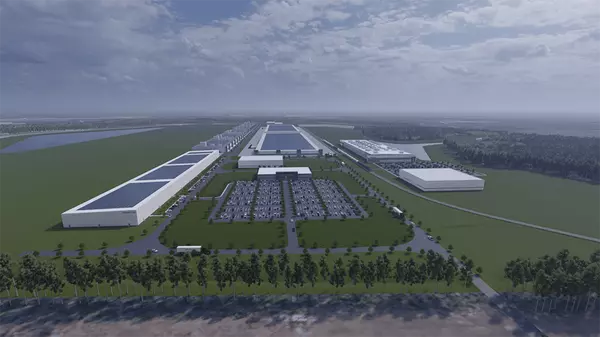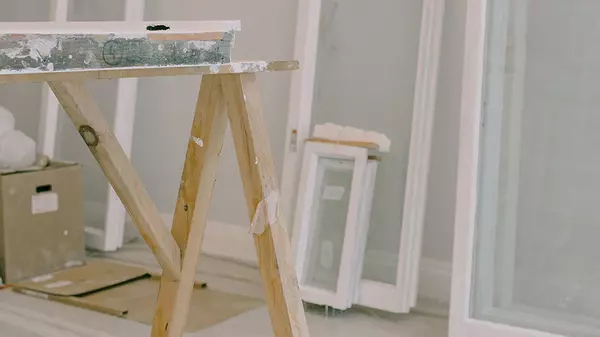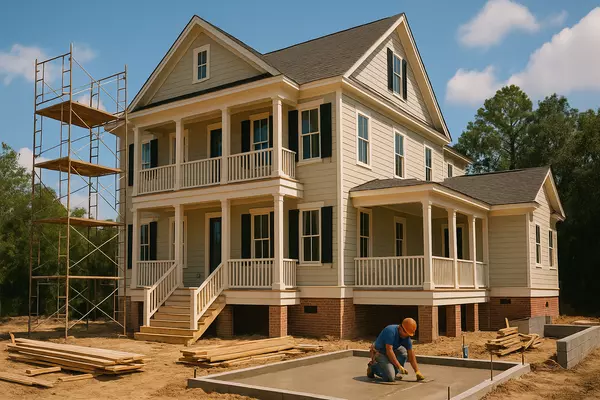Choosing the Right Homebuilder in Charleston: 5 Red Flags and 3 Green Lights
Building a home in the Charleston area is an exciting endeavor – you get to create a space that’s truly yours, from the ground up. But choosing the right homebuilder is the decision that will make or break that experience. In a market as vibrant and growing as Charleston, a great builder will not only construct your dream home, but also guide you smoothly through the process.
So how do you find “the one” among Charleston’s many homebuilders? In this guide, we’ll walk you through everything you need to know – from planning your vision to vetting builders – so you can move forward with confidence.
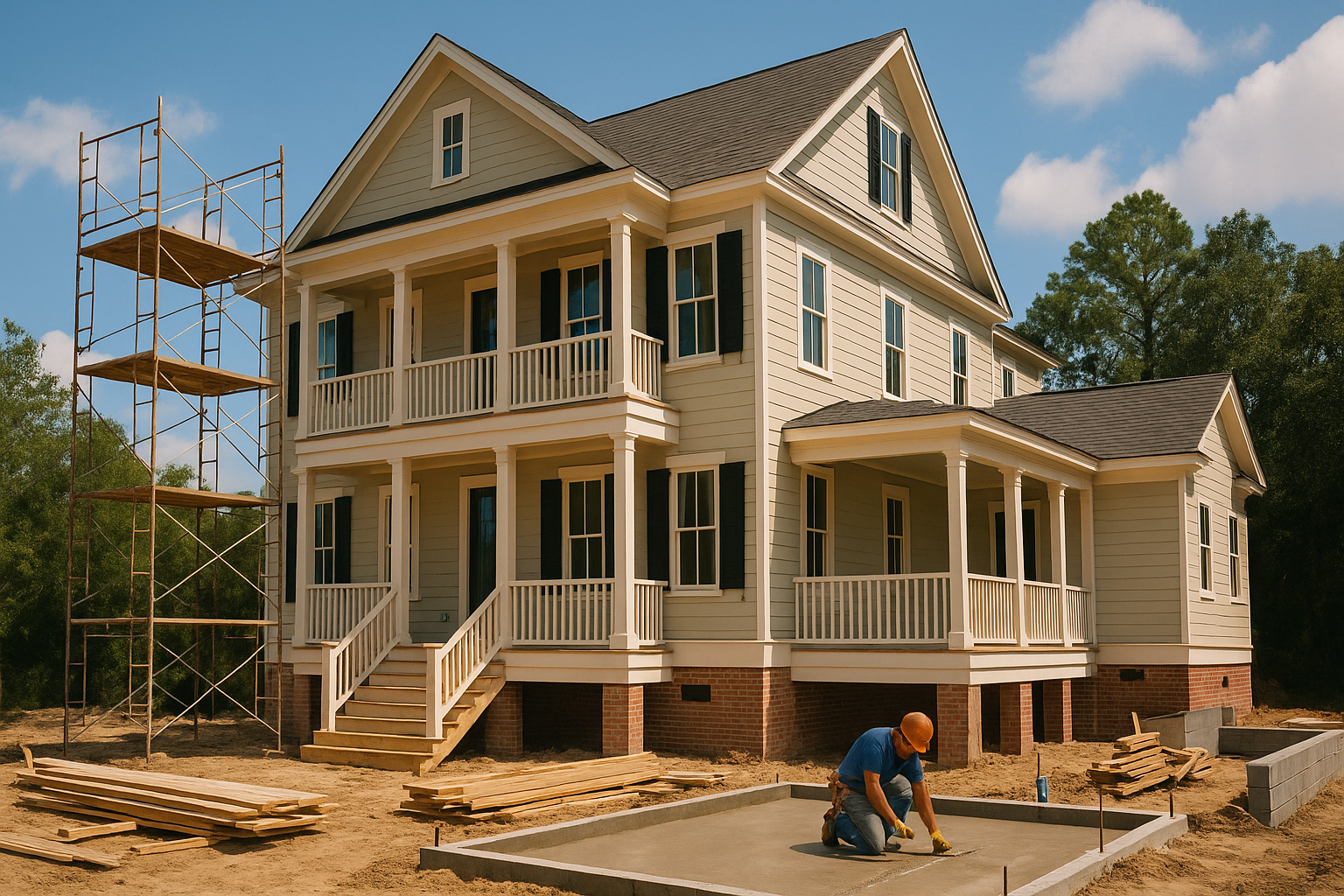
Why Picking the Right Builder Matters
When you decide to build a home vs buying an existing one, you’re not just buying a product – you’re entering a long-term partnership. The construction process in Charleston typically takes months (sometimes up to a year or more), and your builder will be your close collaborator throughout this journey. The right builder will keep your project on track, on budget, and aligned with your vision. The wrong builder, however, could lead to delays, cost overruns, or countless headaches.
Remember, this is likely one of the biggest investments of your life. Charleston’s real estate market is booming, and new construction is a popular choice for buyers who can’t find exactly what they want in resale homes. By choosing a reputable, qualified homebuilder, you’re safeguarding that investment and setting the stage for a successful build. So before you pour the foundation, let’s lay your own foundation for selecting the best builder.
Step 1: Define Your Vision and Needs First
Start with you and your dream. Before you even contact builders, take time to outline exactly what you’re looking for in a home. Ask yourself and your family: What do we want to build? Consider key factors like:
- Home style and size: How many bedrooms and bathrooms do you need? One story or two? Do you envision an open-concept floor plan, a Charleston-single style, a modern farmhouse?
- Location: Are you set on a particular neighborhood or suburb in the Charleston area? Do you need to be within a certain commute distance to work or school zones?
- Lot and land: Do you already own land to build on, or will you need a builder who can help you find a suitable lot? How important are features like a large yard, privacy, or waterfront access?
- Must-haves vs. nice-to-haves: Make a list of features you must have (for example, a main-floor primary suite or hurricane-resistant construction materials) and features that would be nice but not deal-breakers. This will help later when you’re evaluating what different builders offer.
Writing down these details will give you a “requirements checklist” to share with prospective builders. It also prevents you from getting swayed by a builder’s model home or sales pitch that doesn’t actually align with your needs. Essentially, you’ll be able to say, “This is what I’m looking for – can you build it, and build it well?”
Having a clear vision upfront makes it much easier to choose the right homebuilder. Builders often have different strengths or specialties; some may excel at luxurious custom designs, while others might be great at budget-friendly starter homes. Knowing your priorities will help you find a builder that matches your project. (Plus, your clarity will impress builders – it shows that you’re serious and prepared.)
Step 2: Do Your Homework – Research Charleston Builders
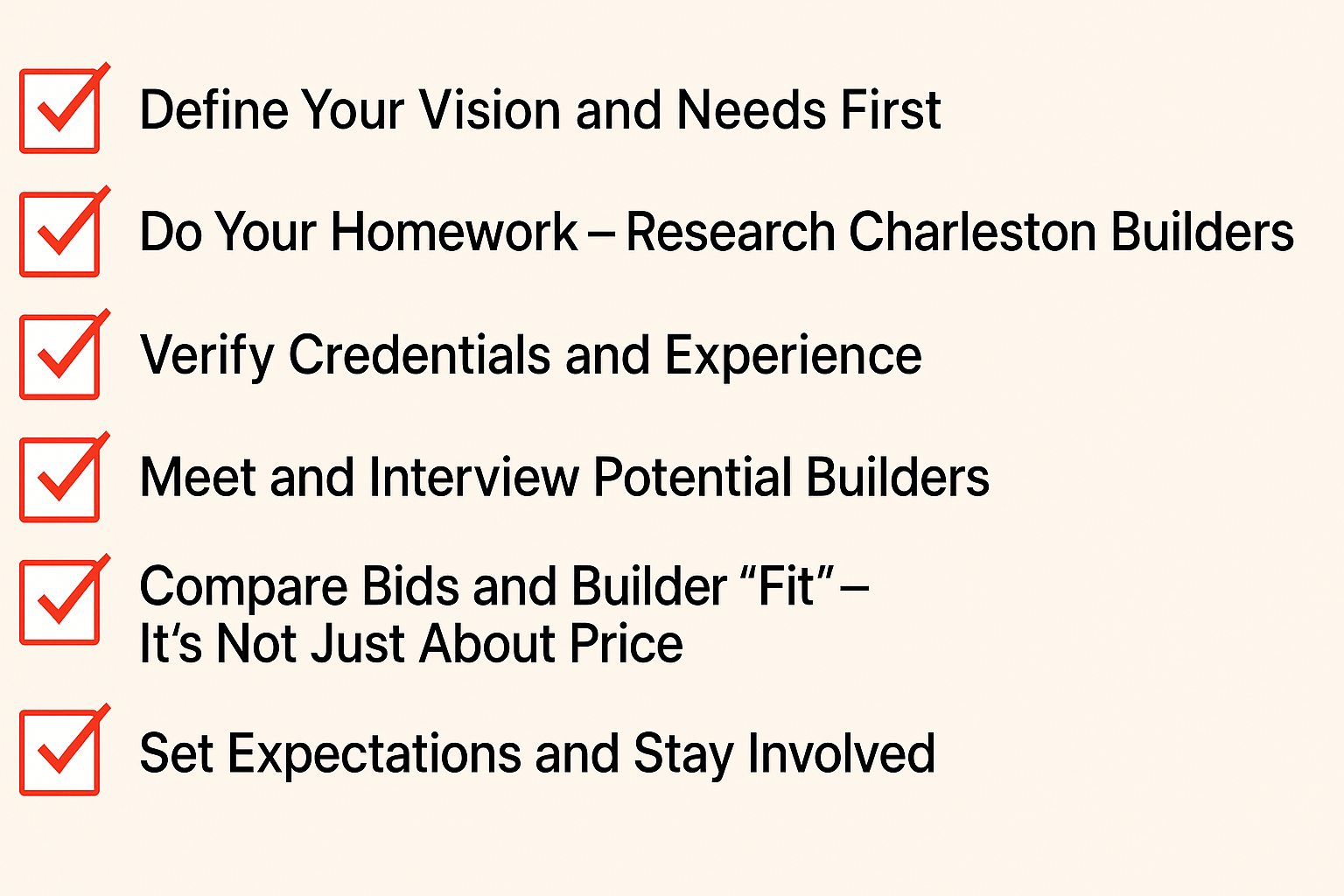
With your wish list in hand, it’s time to play detective. The goal of this stage is to create a shortlist of reputable Charleston-area builders who meet your criteria. Here’s how to get started:
- Leverage Online Resources: Begin with a broad search for new home builders in Charleston, SC. Visit builders’ websites to see the homes they’ve built, the neighborhoods they build in, and any reviews or galleries of their work. Many builders showcase floor plans and virtual tours online – take advantage of that to judge if their style fits your vision. (Fun fact: the vast majority of homebuyers today start their home search online, so you’re in good company.) As you browse, make notes of builders who have experience with the type of home you want.
- Read Reviews and Testimonials: The internet has made it much easier to vet a builder’s reputation. Check Google reviews, Yelp, Angie’s List, or Houzz for feedback on builders you’re considering. Look for patterns in what people say. Consistently glowing reviews for quality and communication are a green flag, whereas multiple reports of delays or budget overages are warning signs. Don’t be alarmed by one or two negative comments (you can't please everyone), but do pay attention to any recurring red flags. You can also ask builders if they have client testimonials or even references (more on that in Step 4).
- Use Local New-Home Guides: Charleston has local real estate guides and websites devoted to new construction (for example, sites that list new home communities and builder ratings). These can be gold mines for finding builders active in the area and seeing at a glance which developments they’re involved in. They might also have articles or resources (like “Top Charleston Builders” lists) that can point you toward reputable companies.
- Ask Your Network: Don’t underestimate word-of-mouth. If you have friends, family, or colleagues in the Charleston area, ask if anyone has built a home recently. First-hand experiences can tell you a lot. Who did they build with, and would they recommend them? What went well and what didn’t? People love to share their stories, and you’ll get unfiltered insight. Even if someone had a bad experience, that’s valuable information on who to possibly avoid.
- Tap into Realtor Expertise: Consider enlisting a real estate agent who specializes in new construction (or who at least has experience in it). An agent who knows the local builders can be an invaluable matchmaker. They often have the inside scoop on which builders have great craftsmanship and which ones have had issues. In fact, some of the best agents double as new construction consultants – they’ll accompany you on model home visits, help you ask the right questions, and advocate for you throughout the build. (If you’re relocating to Charleston without a network of locals to ask, having a knowledgeable Realtor by your side is almost a must.) The key is that you don’t have to do this alone; professionals are available to guide you in evaluating builders.
By the end of this research phase, aim to have a shortlist of maybe 2–4 builders that seem like a good fit. These are the ones you’ll move forward with to the next steps, which involve deeper due diligence and direct interaction.
Step 3: Verify Credentials and Experience
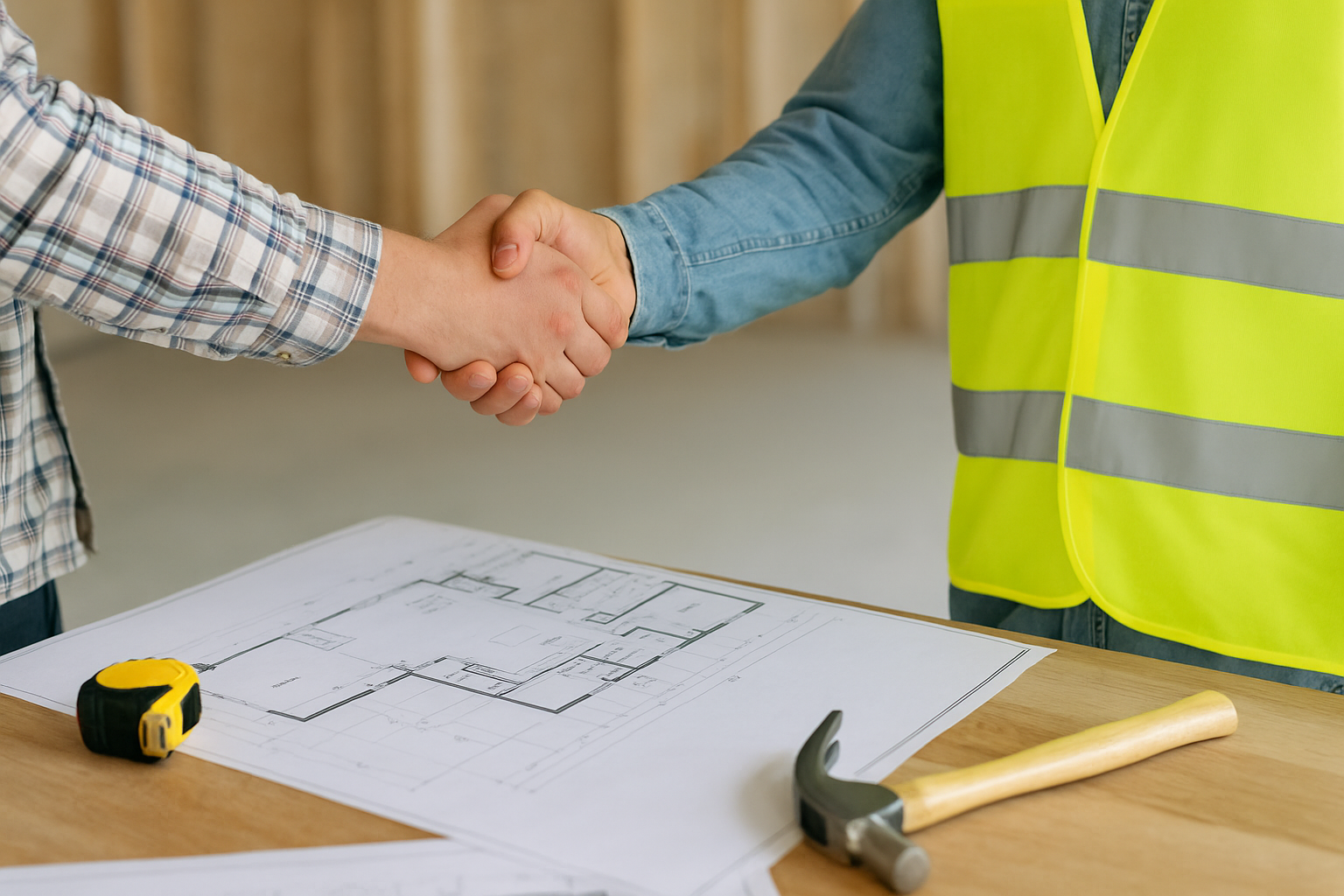
Now that you have a shortlist, it’s time to vet their qualifications. Building a house is complex, and you want a builder who is fully qualified and capable. Here’s what to confirm:
- License and Insurance: South Carolina requires homebuilders to be licensed, and you should only work with a licensed builder. Don’t hesitate to ask for their South Carolina builder’s license number or look it up on the state licensing board’s website. A reputable builder will gladly provide this info. Also ask if they carry general liability and workers’ compensation insurance (they should). Insurance protects you in case of accidents or damage during construction. If a builder can’t prove they are properly licensed and insured, consider it a deal-breaker – it’s not worth the risk.
- Years in Business: Experience isn’t everything, but it is reassuring. Find out how long the builder has been operating, and roughly how many homes they’ve built in total. A builder with a long track record in Charleston has demonstrated they can manage their business well and likely isn’t going to disappear overnight. It also means they’re familiar with local building codes, permit processes, and common construction challenges in the Lowcountry (like flood zones or hurricane standards). Newer builders can be fine too (everyone starts somewhere), but if you’re considering a less experienced builder, pay extra attention to their references and project management approach.
- Experience with Your Type of Home: Not all homebuilders are proficient in all styles or price ranges. Some build mostly upscale custom homes on clients’ own land, others build in pre-planned communities, some specialize in entry-level homes, others in historical-style architecture, and so on. Ask the builder, “Have you built the kind of home I’m looking to build?” For example, building on a rural lot with well water and septic is a different ballgame than building on a tight urban infill lot, or constructing a sprawling estate vs. a cozy cottage. Ensure the builder’s portfolio aligns with your project’s needs. If they’ve built something similar to your dream home, that’s a great sign. If not, you might be paying for their learning curve.
- Community Ties and Local Knowledge: This is a bit more intangible, but important. A builder who has strong local connections can often get things done more efficiently. Do they have good relationships with Charleston-area permitting offices and inspectors? (You could ask, for instance, “How familiar are you with the permitting process in {your city/county}?”) Have they worked with local architects or engineers? Are they members of the Charleston Home Builders Association or other local industry groups? A well-connected builder won’t be “coming in blind” – they’ll know how to navigate local regulations and likely have preferred vendors to call on. This can save time and prevent delays. Plus, a builder with a good local reputation has a reputation to uphold in the community, which can give you extra peace of mind.
By verifying these credentials and the builder’s experience, you’re essentially doing a “background check” on your potential partner. A trustworthy builder will appreciate that you’re thorough – it shows you’re serious about the project. Don’t feel awkward about asking for proof of licensing or examples of past work; professionals expect it. This is your future home on the line, after all!
Step 4: Meet and Interview Potential Builders
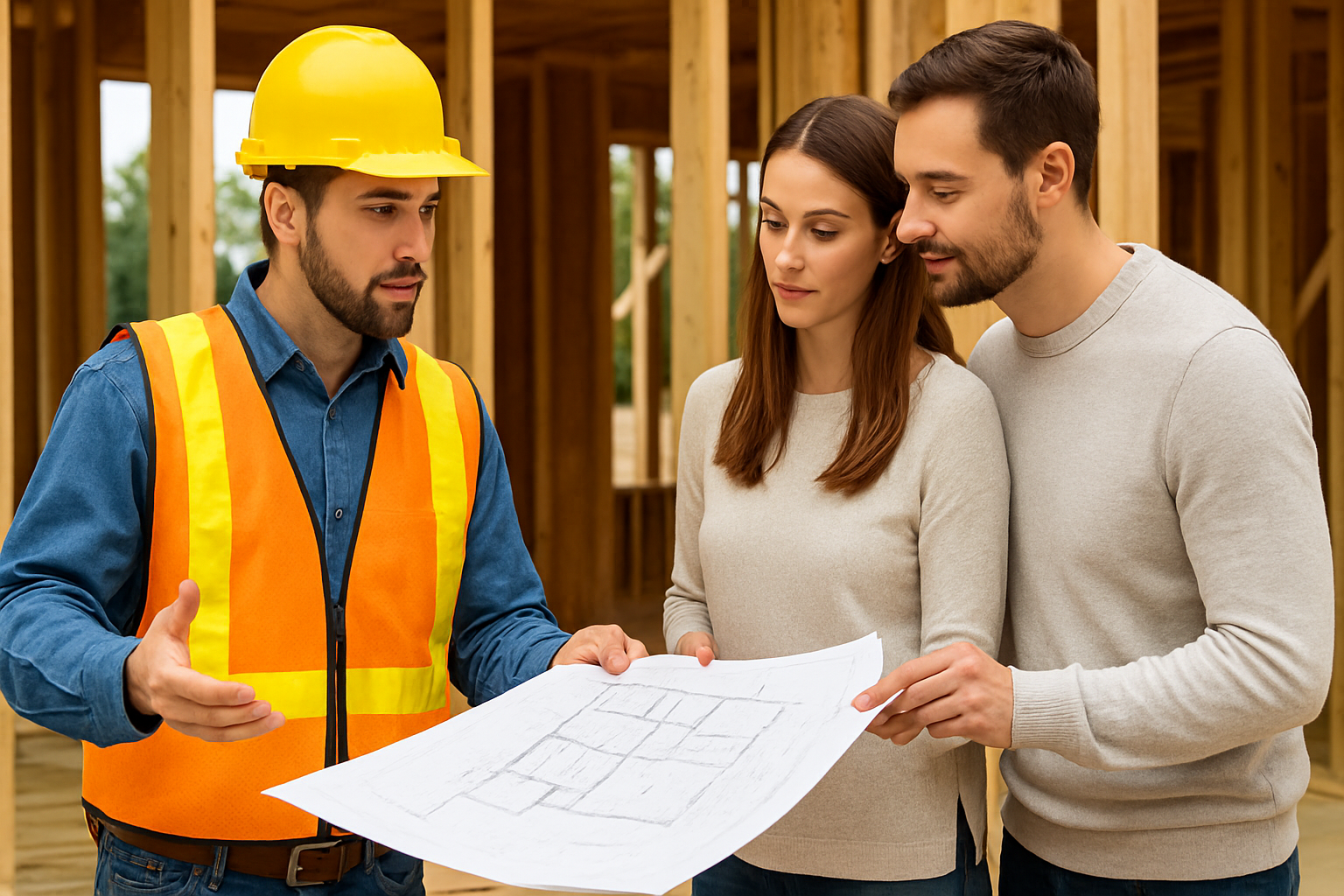
With preliminaries out of the way, set up meetings with each builder on your shortlist. This could be an initial phone call followed by an in-person meeting, or even a tour of one of their model homes or current construction sites. Treat this like a job interview – you are the employer hiring someone (the builder) for a very important job. Come prepared with questions to ask potential home builders. Some important topics and questions to cover include:
- Current Projects and Workload: Ask what projects they’re working on right now and how many homes they build at a time. You want to gauge if they have the capacity to take on your home without stretching themselves too thin. A builder juggling too many projects might not give yours the attention it needs.
- Timeline and Process: “What is your estimated timeline for designing and building a home like mine?” A good builder will outline the steps (design, permitting, site prep, construction phases, etc.) and give you a rough timeline of how long it will take to build your home. They should also be upfront about possible delays (weather, supply chain issues) and how those are handled. Be cautious if a builder promises an unreasonably quick timeline that seems too good to be true. Construction always has variables – the key is that they have a solid process for managing them.
- Budget and Pricing Details: Of course, you’ll discuss the cost. Rather than just asking “How much per square foot?”, ask for details on what is included in their pricing. “What standard features come with your homes? And what would be considered an upgrade or extra?” For example, does the price include things like hardwood floors, granite countertops, high-end appliances, or are those upgrades? Is landscaping included? What about fees for permits or impact fees? Builders each have their own pricing structure, so get clarity. Also inquire about how change orders (changes or additions you request mid-build) are handled and priced. A transparent builder will walk you through a sample budget or quote. This is also the time to mention your overall budget range and see if it aligns with the type of homes they build.
- Experience of their Team/Subcontractors: You might ask, “Who will be working on my home?” Builders typically subcontract things like plumbing, electrical, HVAC, etc. It’s fair to ask if they have long-term relationships with trusted subcontractors or if they bid out to the lowest sub each time. A builder who has a stable team of quality tradespeople is likely to deliver better quality (and have more control over the schedule) than one who picks subcontractors solely on cost or availability. You can also ask if they have supervisors or project managers who will be on-site regularly overseeing construction – oversight is crucial for quality control.
- Communication and Point of Contact: One of the most important questions: “How will we communicate during the build, and how often?” Will you have a dedicated point of contact (e.g. a project manager or the builder/owner themselves)? Are there regular check-in meetings or weekly updates? Building a home is a dynamic process, and you should expect ongoing communication. You’ll want a builder who is accessible and communicative, not one who leaves you in the dark. Strong communication throughout the process is key to a stress-free experience – you should feel comfortable reaching out with questions and receive timely, clear updates in return.
- References from Past Clients: Don’t hesitate to ask for references – a few past customers you can speak with. A confident builder will have satisfied clients and will be happy to connect you. When you call those references, you might ask: “What did you like best about working with this builder? Any challenges? Did the project finish on time and on budget? How was the communication? Would you build with them again?” Hearing directly from someone who was in your shoes is invaluable. (Pro tip: If a builder has a model home staffed with a sales rep, sometimes they’ll arrange for you to meet a homeowner in the community who built with them. Take advantage of that if offered.)
- Warranty and Post-Build Support: Clarify what kind of home warranty they provide on a new home. Many builders offer a 1-year general warranty (covering workmanship and materials) plus longer structural warranties (like 8 or 10 years on the foundation/structure). Ask how they handle post-closing issues: “If I have a concern or something breaks after move-in, how do you address it?” You want to hear that they have a clear process for warranty requests and stand by their work. A builder’s responsiveness after they’ve been paid is a true test of their customer service.
During these interviews, pay attention not just to the answers, but to the builder’s demeanor and communication style. Are they patiently addressing your questions? Do they seem open and honest? Or do they dodge certain questions or give you a hard sell? Trust is huge. You’ll be working closely with this person/company for many months, so it’s important you feel a good rapport.
Also, by comparing answers from different builders, you’ll start to see who stands out. Maybe one gives far more detailed answers or has better suggestions, whereas another might seem irritated by questions. These are telling signs. After meeting all candidates, you might even score or rank them based on factors that matter to you (e.g., communication, transparency, reputation, price, etc.).
Step 5: Compare Bids and Builder “Fit” – It’s Not Just About Price
After your research and interviews, hopefully one or two builders have emerged as favorites. At this stage, you’ll likely be looking at proposals or estimates from them. Cost is certainly an important factor – you have a budget to maintain – but remember, the cheapest quote is not always the best choice. Here’s how to make an informed comparison:
- Break Down the Bids: Review each builder’s estimate in detail. What are the allowances or specifications? (e.g., what quality of flooring, appliances, windows are figured in.) One builder’s bid might be higher but maybe they included higher-end materials or more features by default. If something is unclear or missing, ask about it. You want to be sure each quote covers roughly the same scope of work so you’re comparing apples to apples. It can be helpful to make a simple spreadsheet listing each major category (foundation, framing, roofing, fixtures, etc.) and see how the bids line up.
- Assess Value, Not Just Total: Think in terms of value received for the cost. Builder A might be more expensive, but perhaps they have an impeccable reputation for quality and will deliver a truly turn-key home with no surprises. Builder B might come in lower, but will you be sacrificing something (e.g., using cheaper materials, or a shorter warranty, or less personalized service)? Often, you “get what you pay for” in homebuilding. That doesn’t mean you should overpay, but if one quote is drastically lower than others, it’s worth asking why. They may be cutting corners or might have accidentally left something out of the bid. On the flip side, the highest bid isn’t a guarantee of the best work either – it could just be a higher profit margin. This is where your earlier research on reputation helps; a slightly higher price from a builder known for great craftsmanship and service might be worthwhile for peace of mind.
- Consider the Builder’s Communication & Transparency: Reflect on how each builder handled the quoting process. Were they transparent, walking you through each line item? Did they listen to your budget concerns and try to find solutions (like suggesting alternative materials to save cost)? The way a builder treats you during this “courtship” phase is indicative of how they do business. If one builder was responsive and clear in the bid stage and another was hard to pin down or vague, that’s significant information.
- Timeline and Scheduling: Also factor in the timeline each builder gave. If one can start next month and finish in 8 months, and another can’t start for six months and estimates a year to build, how does that align with your needs? Sometimes a slower timeline is fine; other times you might be in a hurry. Just ensure any promised timeline is realistic. A faster build is tempting, but not if quality suffers. Balance your desired move-in date with doing it right.
- Gut Feeling: Finally, weigh your gut feeling about each builder. Which builder do you trust the most? Whose style and ethos resonated with you? This is subjective, but important. You’ll be in close contact with this builder for many months, making countless decisions together. Choose someone you feel comfortable with – someone who listens to you, understands your vision, and makes you feel at ease. If any builder gave you bad vibes or if communication was strained even in early stages, imagine how that might escalate under the stress of construction. Go with a partner who instills confidence.
Once you’ve considered all these factors, you’re ready to make your decision and choose the builder for your new home. Congratulations! But our journey doesn’t end there – you still need to set the project up for success.
Step 6: Set Expectations and Stay Involved
(So you’ve picked your builder – hooray! This final section isn’t so much a step in choosing a builder as it is advice to follow after the choice, to ensure a smooth process.)
- Sign a Clear Contract: Your builder will provide a detailed construction contract. Read it thoroughly (it’s long like this blog post, but worth it). Make sure it includes everything you’ve agreed on: the plans, specifications of materials, the timeline or schedule of stages, payment schedule, and warranty information. If anything discussed isn’t written down, speak up and have it added before you sign. The contract protects both you and the builder by setting clear expectations.
- Maintain Open Communication: Establish with your builder how you’ll communicate going forward. Perhaps you’ll have a brief weekly call or email update. Perhaps there’s a project management website or app they use where you can track progress. Knowing how to reach each other (and actually doing so regularly) will prevent many issues. Don’t hesitate to ask questions if you’re unsure about something. It’s your home – you have the right to stay informed. Good builders appreciate engaged clients.
- Be Prepared for Surprises (and Roll with Them): Even the best builders can encounter unforeseen challenges – maybe the city wants an extra permit, or there’s a delay in a custom window delivery, or Mother Nature decides to send a storm on the day of your concrete pour. Understand that some hiccups are normal. The key is how the builder addresses them and communicates with you. If you’ve chosen well, your builder will proactively solve problems and keep you in the loop. Try to stay flexible and patient, and trust that your builder is working in your best interest (because if you’ve picked a great one, they will be!).
- Visit the Site (But Don’t Micromanage): It’s very exciting to watch your home take shape. Visiting the construction site periodically is a good idea – with appropriate safety gear and at scheduled times – so you can see progress firsthand. It also shows your interest. Most builders are proud to show off their work. That said, avoid the temptation to show up unannounced every day or to second-guess every nail and board (unless you see something truly concerning). Let the professionals do their job. Maintain respect and trust, as you would in any partnership.
By following these steps and staying involved, you dramatically increase the odds that when move-in day arrives, you’ll not only have the home you dreamed of, but also a positive building experience to look back on.
Conclusion: Making Your Charleston Dream Home a Reality
Choosing the right homebuilder in Charleston comes down to doing your homework, asking the right questions, and trusting your instincts. Yes, it’s a lot of legwork upfront – but that investment of time can save you from costly mistakes and regrets later. When you partner with a builder who checks all the boxes – proven experience, strong reputation, quality workmanship, transparent communication, and an honest price – you set the stage for a successful project and a beautiful custom home that will stand for years to come.
At The Family Real Estate Group, we understand how crucial this decision is because we sit on both sides of the table. We are unique in that we are both a real estate team and experienced homebuilders in the Charleston area. This dual expertise means we can guide you through the entire journey, from finding the perfect lot to handing you the keys of a newly built home. We’ve helped many families navigate the new construction process, and we’d be honored to help you too.
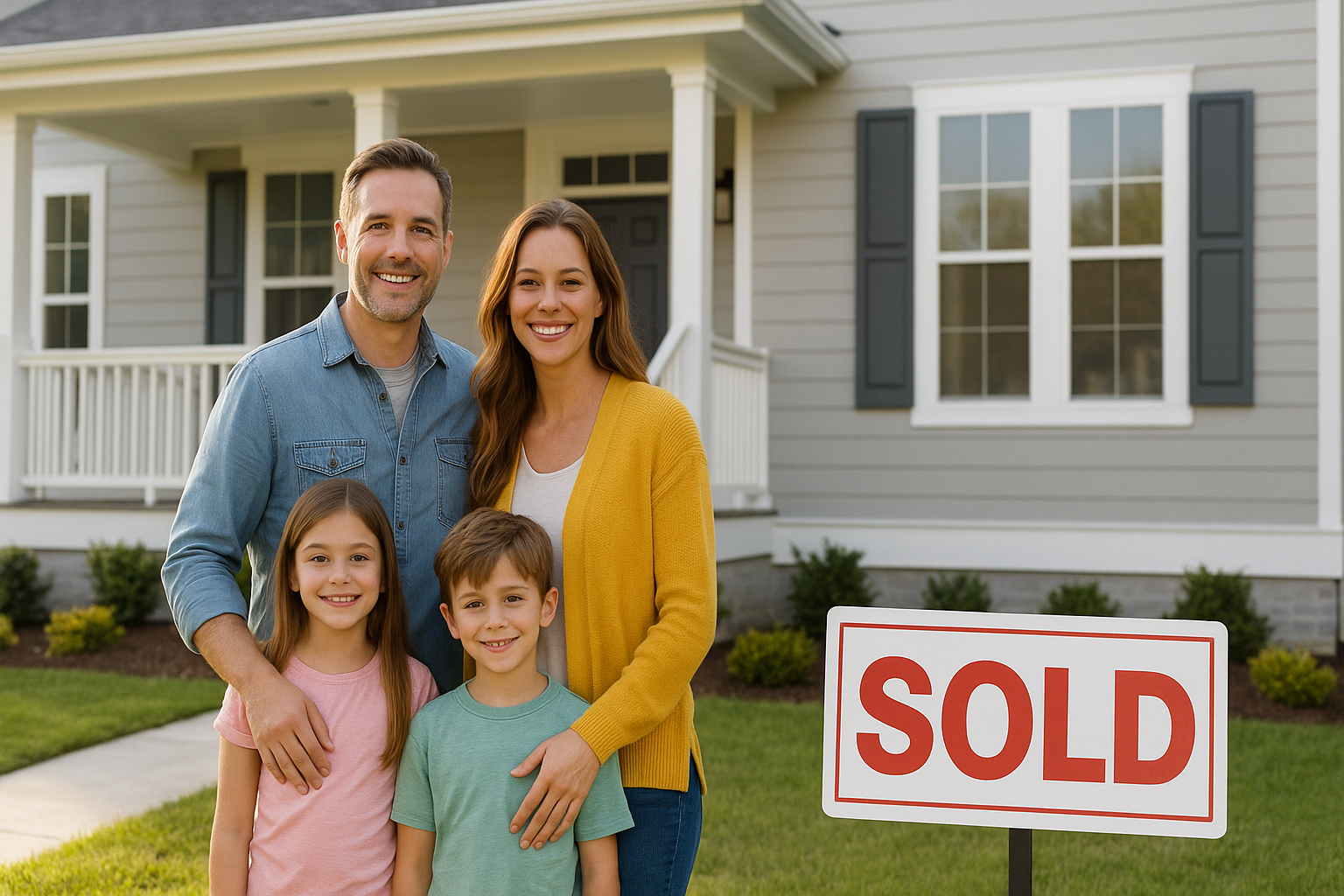
Categories
Recent Posts
